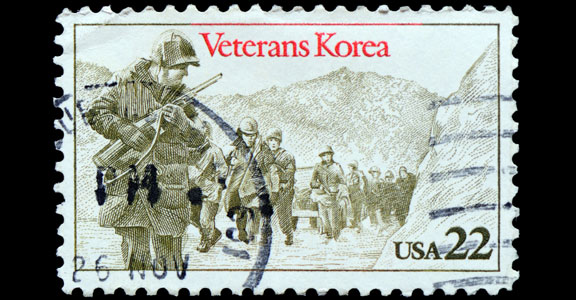Korean War Breaks Out: MacArthur Laments Absence of Military Intelligence
 Americans could see the European buildup to both World Wars, though the sudden and deliberate attack on Pearl Harbor was still a surprise, at least in terms of where the target would be. The US government had already backed the Japanese into a corner, so it was just a matter of time.
Americans could see the European buildup to both World Wars, though the sudden and deliberate attack on Pearl Harbor was still a surprise, at least in terms of where the target would be. The US government had already backed the Japanese into a corner, so it was just a matter of time.
On June 25, 1950, however, it was a surprise when the North Korean communists brutally poured over the border in a blitzkrieg attack that almost drove the US off the peninsula. Military intelligence was apparently asleep. Who would dare attack the total war victor of WWII? The guard was down everywhere. The wrong assumptions were rife.
Occupied Japan was still a party zone for US troops under General Douglas MacArthur who, as he describes in Reminiscences, woke up that fateful Sunday morning in Tokyo when a telephone call brought the bad news. “Thousand of Red Korean troops had poured over the border, overwhelming the South Korean advance posts, and were moving southward with a speed and power that was sweeping aside all opposition”:
How, I asked myself, could the United States have allowed such a deplorable situation to develop? I thought back to those days, only a short time before, when our country had been militarily more powerful than any nation on earth. General Marshall, then Army chief of staff, had reported to the Secretary of War in 1945: “Never was the strength of American democracy so evident nor has it ever been so clearly within our power to give definite guidance for our course into the future of the human race.” But in the short space of five years this power had been frittered away in a bankruptcy of positive and courageous leadership toward any long-range objectives. Again, I asked myself, “What is United States policy in Asia?” And the appalling thought came, “The United States has no definite policy in Asia.”
US policy may have been defined more adequately vis-a-vis the Soviets, but Asia was a different matter. In Reminiscences, he argues for a similar shortsightedness early in WWII as Japan ranged almost unchecked through the Pacific, gobbling up even US and British possessions.
In Korea, yet another surprise came to US military intelligence when Communist Chinese forces supplanted the North Koreans as the primary adversary. After all, Americans were right on their border. The Chinese could tell that the US had no will to use atomic weapons against them, despite not having to worry about counterattack in kind. Aggressors first study the self-imposed weaknesses of militarily superior forces, then cake walk their way to victory. Is the current mess in Iraq really that different?
 Americans could see the European buildup to both World Wars, though the sudden and deliberate attack on Pearl Harbor was still a surprise, at least in terms of where the target would be. The US government had already backed the Japanese into a corner, so it was just a matter of time.
Americans could see the European buildup to both World Wars, though the sudden and deliberate attack on Pearl Harbor was still a surprise, at least in terms of where the target would be. The US government had already backed the Japanese into a corner, so it was just a matter of time.